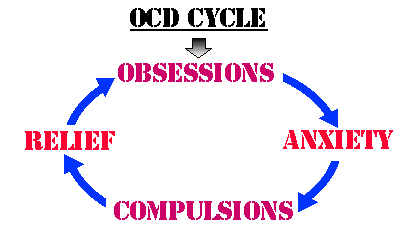Many of us
have small habits that make us feel better, but we can also live without them.
For example, we might think of something as ‘lucky’ or have a routine that
feels comforting. But for people who experience obsessive-compulsive disorder
(OCD), these behaviors are much more intense and disruptive and are fuelled by
unwanted thoughts that don’t go away. Obsessions are ideas, thoughts, impulses,
or images that keep coming back. They are not enjoyable; rather obsessions are
unwanted and upsetting, causing severe anxiety or distress. OCD sufferers
attach much greater meaning and threat to these thoughts than others. The
obsessions won't just "go away." In order to cope with the
obsessions, people with OCD engage in repeated behaviors or thoughts, known as
compulsions, to make themselves feel safer. Compulsions are rituals that the person
believes reduce the risk of the obsessions coming true, or at least reduce the
anxiety they produce. Obsessive-compulsive disorder is not always easy to
understand, but it’s a real illness that causes difficulties in a person’s
life. If you have OCD, you probably recognize that your obsessive thoughts and
compulsive behaviors are irrational but even so, you feel unable to resist them
and break free. Like a needle getting stuck on an old record,
obsessive-compulsive disorder causes the brain to get stuck on a particular
thought or urge. For example, you may check the stove twenty times to make sure
it’s really turned off, wash your hands until they’re scrubbed raw, or drive
around for hours to make sure that the bump you heard while driving wasn’t a
person you ran over. We all have a part of this disorder in my opinion; we all
get unwanted thoughts from time to time and sometimes is happens more than
once, people with OCD frequently perform tasks, or compulsions, to seek relief
from obsession-related anxiety.
Common OCd Types
(Percent of
OCD Cases by Symptom)
Checking 79.3%
Hoarding 62.3%
Ordering 57.0%
Morality 43.0%
Sexual/Religious 30.2%
Contamination/Washing 25.7%
Harming/Aggression 24.2%
Illness 14.3%
Other 19.0%







